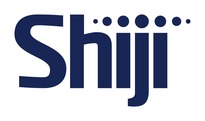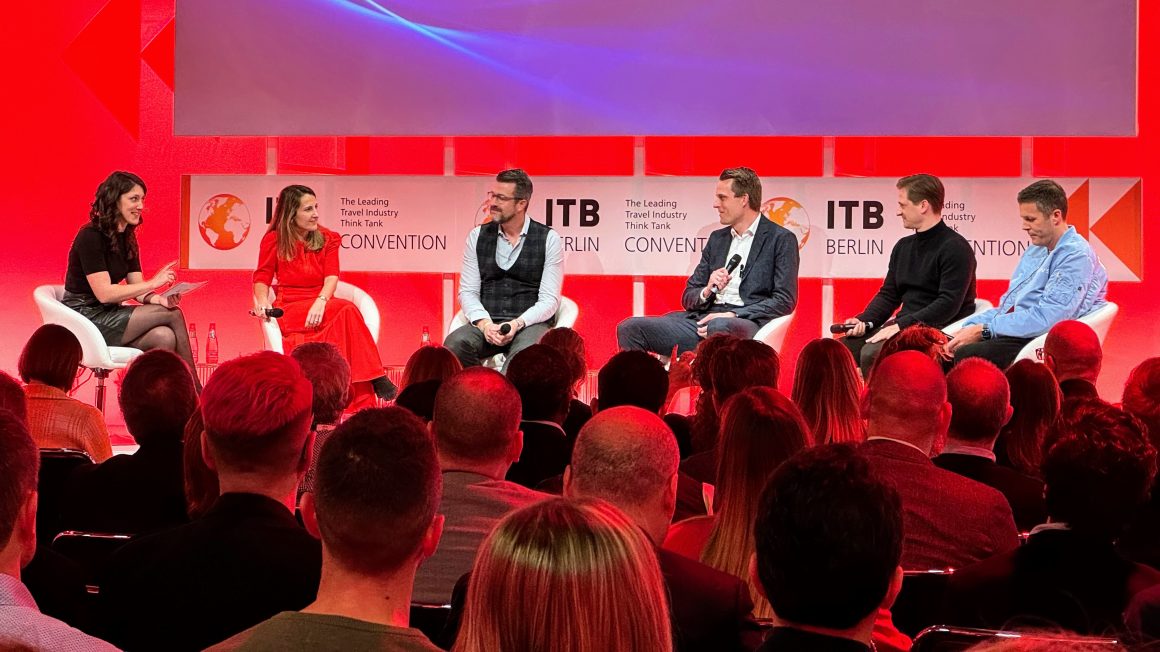Hotel Technology Trends (or Hypes?) – A Panel of Industry Leaders at ITB Berlin


ITB Berlin 2024 provided a platform for seasoned industry leaders to share insights and their predictions on the innovations destined to influence the hospitality landscape. The Hotel Technology Trends (or Hypes?) discussion, contributed to by seasoned industry insiders Lucile CORNET (Eight Roads), Wietse Bijzeit (Shiji Group), Lucas Höfer (Ruby Hotels), Matthijs Welle (Mews) and Frank Seedorff (B&B Hotels Germany GmbH). Lea Jordan solidified her position as one of our industry’s best moderators by skillfully encouraging each panellist to provide practical insights and predictions whilst respectfully challenging at the right moment to get that little extra.
What the Experts Said

Wietse Bijzeit highlighted the hospitality industry’s significant moment with its increasing embrace of cloud technologies, marking a foundation for subsequent technological progress. He emphasised the potential impact of robotics, digital identities, and the integration of AI with large action models in the sector.
According to Wietse, these large action models offer a groundbreaking way to enhance hotel decision-making by converting complex challenges into straightforward, actionable insights. This indicates a major shift towards more efficient and innovative operational strategies.
Lucile Cornet, bringing a venture capitalist’s perspective, emphasised the crucial need for hotels to forge direct connections with guests and move away from the dependency on third-party platforms that has grown over the years.
She sees a future where hotels can rekindle personal connections with guests, significantly enhancing customer engagement through personalisation.
Lucile elaborated on her investment approach, stressing the value of learning from other sectors, such as neobanks, social media, and gaming, to understand and cater to the changing behaviours of younger consumers.
Lea probed Lucile, questioning the comparability of these different markets. Lucile affirmed the relevance, pointing to the trend of seamless payments within apps and the preference for AI-driven customer support and chat systems over traditional phone calls.
Frank Seedorff outlined four key technological areas vital for the progress of the hospitality sector. AI in customer service, data platform integration, revenue management automation, and corporate social responsibility (CSR). Frank suggested using AI to improve customer service and pricing accuracy, enhancing the guest experience.
Frank recommended that hotel chains adopt technology that aligns with their business strategy and provides direct benefits. He emphasized involving the team in tech decisions and evaluating new tech based on the hotel’s strengths.
Lucas Hoefer added that the hotel industry is shifting towards active analysis and application of guest data through AI to enhance the guest experience. AI is predicted to revolutionise guest service by creating personalised experiences and making hotel operations more efficient.
The trend towards tailored guest experiences is on the rise. Travellers now prefer longer stays and flexible services. Adaptable technology, particularly AI, is critical in meeting these new consumer preferences.
Lucas stressed the importance of differentiating between fleeting trends and those worth investing in. He advised prioritizing clear business objectives and customer service goals over following fads and recommended strategic planning instead of quick fixes with ad-hoc software solutions.
He advised hotels to assess their team’s capabilities to decide if they need help from an experienced supplier to implement new ideas. Understanding their capacity for executing new concepts is crucial to drive innovation.
Matthijs Welle emphasised investor confidence in cloud-based solutions within the travel industry. He highlighted the critical role of cloud-based systems and APIs as foundational elements that enable the effective use of AI, allowing hotels to stay abreast of the evolving technological landscape.
Mat stressed the significance of investments as catalysts for technological innovation in travel, advocating for the adoption of cloud-based systems with open APIs. Saying hotels must adapt to technological advancements and provide seamless experiences by investing in innovation.
Challenges and Change Management
The panellists were united in addressing the challenges posed by integrating new technologies into existing hotel ecosystems. They highlighted the issue of fragmentation across hotel tech stacks and emphasised the importance of strategically consolidating data to create a more unified system.
The discussion underscored that effective change management is crucial for hotels to realise the full benefits of new technologies. Merely selecting new tools is not enough; hotels must also be capable of adapting to and meaningfully adopting these technologies within their operational framework.
Actionable Advice for Hoteliers
When asked for advice, the panel provided practical guidance for hoteliers aiming to embrace innovation, emphasising several key steps:
Start with the vision: Determine the guest experience your brand aims to provide before exploring technological options.
Embrace the cloud: Opt for cloud-based systems featuring open APIs to establish a tech stack that is both scalable and adaptable.
Understand your brand: Recognize whether your hotel’s strength lies in operational efficiency or customer intimacy, and select technologies that bolster these areas.
Own your data: Ensure secure control over the flow of your data and your organisational structures to maximise their usefulness.
- Hotel Technology Trends (or Hypes?) – A Panel of Industry Leaders at ITB Berlin
- The 2023 Guest Experience Benchmark Report: A Year of Revelations and Reflections
- 2024 Luxury Hotel Guide: Top 5 Strategies for Future Success
- Let’s talk Quality Assurance with Martin Faist at Absolute Hotel Services.
- Hotel Cybersecurity in 2024: The latest threats and best practices for keeping guest data secure
Conclusion
Hoteliers should have a clear brand vision and select technologies that align with it. Before choosing technology, they need to understand their strategic positioning – operational efficiency or customer engagement.
The conversation highlighted the significance of incorporating change management practices with technology adoption. There was unanimous agreement on managing data flow and precisely understanding business objectives for fostering successful innovation.
Lea again demonstrated her expert moderation skills, despite the occasional microphone glitches. Ensuring a balanced conversation where each speaker could convey and emphasise their message. Encouraging hoteliers to engage in dialogue actively, pose questions, and pursue technologies that offer genuine value to their operations.
About Shiji Group
Shiji is a global technology company dedicated to providing innovative solutions for the hospitality industry, ensuring seamless operations for hoteliers day and night. Built on the Shiji Platform—the only truly global hotel technology platform—Shiji's cloud-based solutions include property management system, point-of-sale, guest engagement, distribution, payments, and data intelligence for over 91,000 hotels worldwide, including the largest hotel chains. With more than 5,000 employees across the world, Shiji is a trusted partner for the world's leading hoteliers, delivering technology that works as continuously as the industry itself. That's why the best hotels run on Shiji—day and night. While its primary focus is on hospitality, Shiji also serves select customers in food service, retail, and entertainment in certain regions. For more information, visit shijigroup.com.


